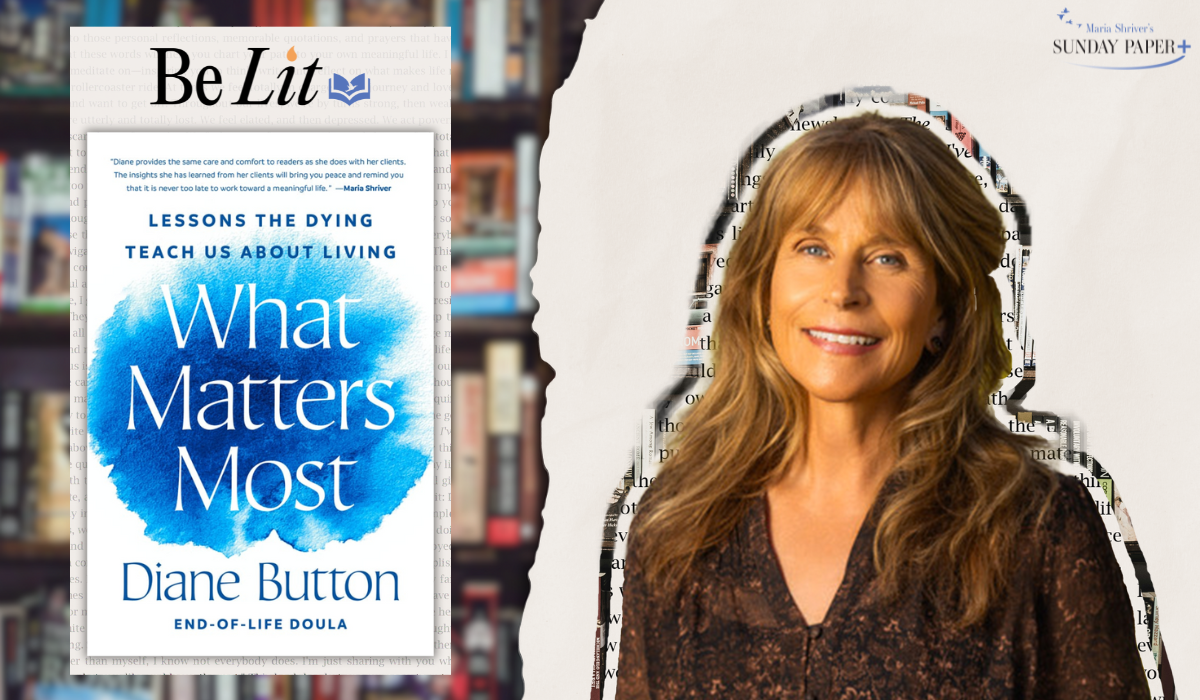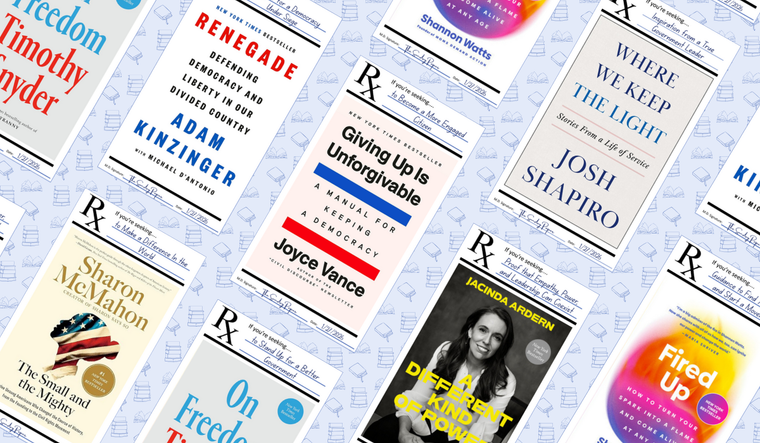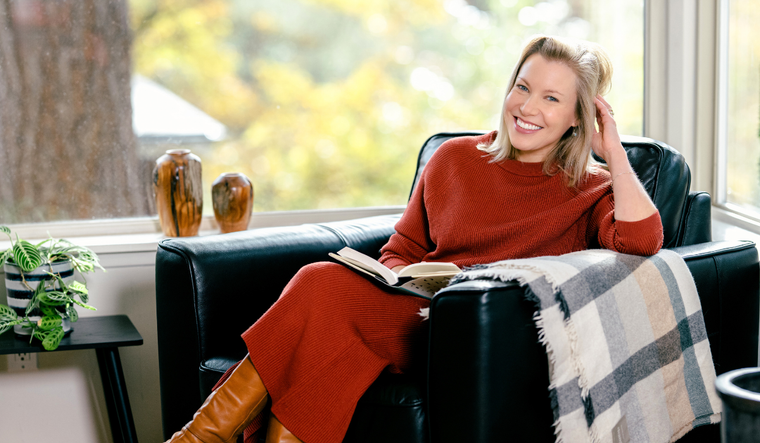Be Lit with Diane Button: An Exclusive Excerpt from “What Matters Most”
Who
Diane Button is a founding partner of the Bay Area End-of-Life Doula Alliance in Northern California and an instructor for the University of Vermont’s End-of-Life Doula Professional Certificate Program. Holding a master’s in counseling psychology, she has been an influential board member of the National End-of-Life Doula Alliance and a hospice volunteer.
What
What Matters Most is a deeply moving collection of stories highlighting the powerful lessons Diane has learned during her almost two decades guiding clients to a peaceful transition. Each client has imparted wisdom that has left an indelible mark, offering her profound reflections and clarity of what it means to both live well and die well.
Why
Diane says, “This book came to be really a culmination of 20 years of working with people at end of life. I started realizing that there just wasn't a lot out there for people who want to read about how they might find a peaceful path to the end of life and to understand death, is to really understand life. I felt this would be a really good time for a mainstream kind of book that anyone could read.”
& We
…chose What Matters Most because it is a profound roadmap to finding what it means to both live well and die well. Maria says Diane Button “provides the same care and comfort to readers as she does with her clients. The insights she has learned from her clients will bring you peace and remind you that it is never too late to work towards a meaningful life.”
It’s an SP+ Double Feature!
Don’t Miss Diane’s Exclusive Life Above the Noise Interview
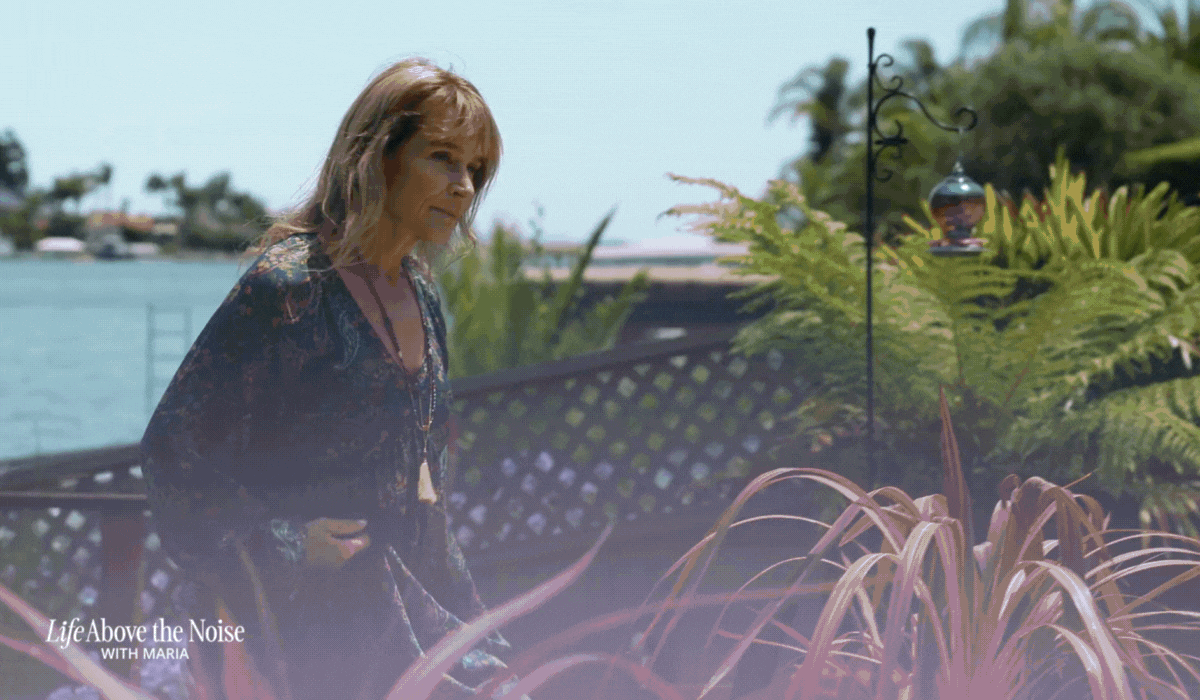
Here’s Your Exclusive Look Inside

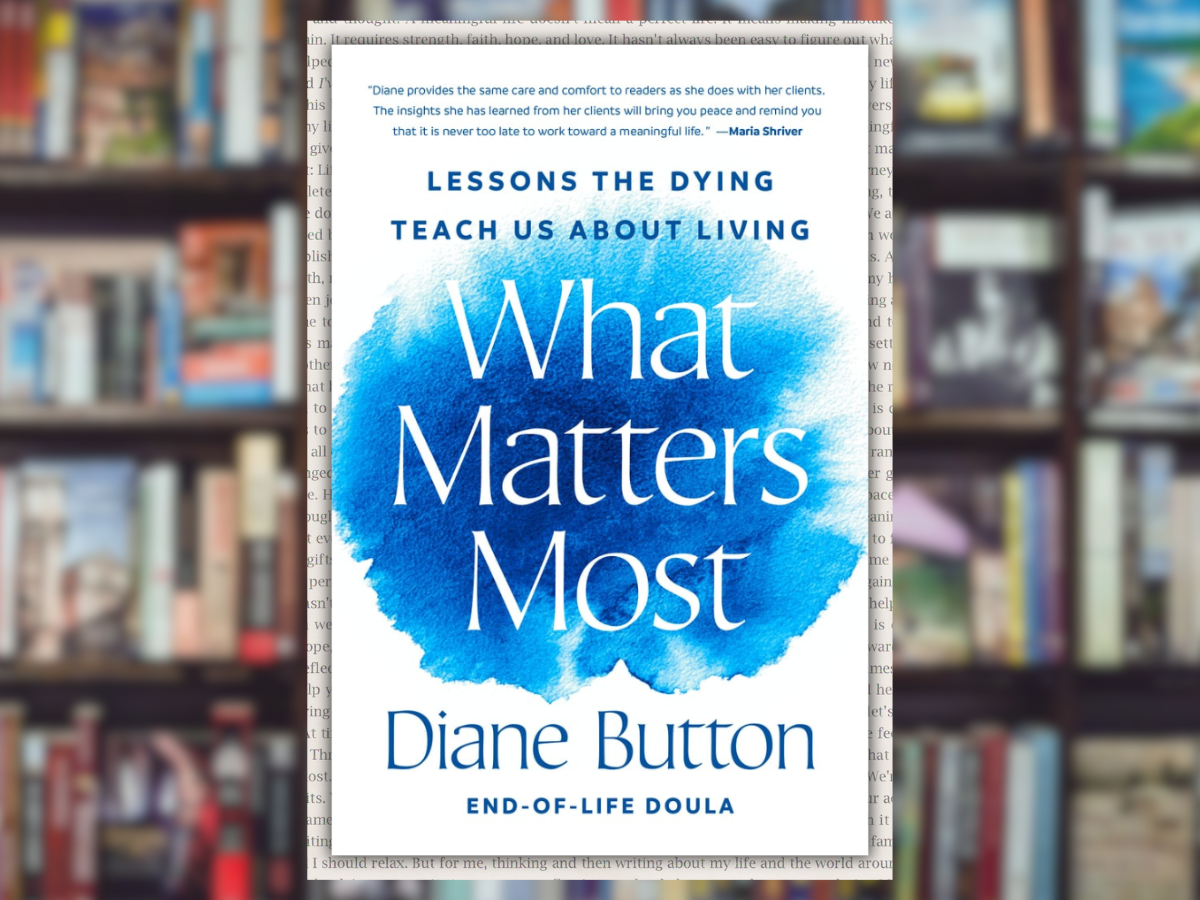
Have you ever met someone who changed the way you see the world?
I’ve had many epiphanies in my work with the dying, but my new book, What Matters Most, would not exist if not for Floyd Barker. He cracked the door open for me, giving me a glimpse into how to truly be an end-of-life doula, and how to meet someone where they are . . . quickly, kindly, and without a hint of procedural red tape.
He taught me how to hold love and grief at the same time, and to honor all the emotions that make us human. But most of all, Floyd showed me the importance of listening, of connecting, and of caring for each other.
Floyd was lonely. He was also dying from kidney failure, but it was the loneliness and grief that were causing his greatest suffering. You couldn’t tell from his gregarious smile and inquisitive eyes, but it was there, deep down and ever present. He was eighty-eight years old and still living alone in the rustic farmhouse he had shared with his late wife, Ruth, for more than sixty years.
Reminders of their life together filled the walls and bookcases, and photos covered the tops of the old pine dressers. This was their home, and he didn’t want to change anything. Ruth died six years before, and Floyd knew he was stuck and living in the past. He wanted to talk to a death doula about letting go a little to free up some emotional energy to see friends, socialize, and maybe even feel some joy again.
Because this was our first visit, I arrived at Floyd’s house with a clipboard filled with pages of questions attached, something I normally did for all my clients. But after talking with Floyd that day, I realized my clipboard was still in my doula bag. I hadn’t even thought about it, yet our conversation was deep and heartfelt, and we managed to talk through the things that mattered most to him.
Floyd didn’t need to tell me what his passions were when he was a teenager or that he collected antique bottles. He needed to tell me that he has never stopped reaching over to the other side of the bed to touch his wife each morning, even though he knows she will not be there. He needed to tell me that he is still looking for his wife’s face on those rare moments he finds himself in a crowd or walking down the grocery aisle. He needed to tell me that his heart is broken, yet he finds joy in the moments when he can share their stories.
If there is any matching proportion of our love to our grief, then Floyd clearly loved Ruth with all his heart and soul. I could see it, sense it, feel it, and hear it in his gentle words.
One day Floyd asked me to accompany him to a doctor’s appointment to take some notes, because his son wasn’t available. When we arrived, Floyd walked into the office, grinning from ear to ear.
The woman at the front desk looked up at us and then looked down at her keyboard.
“Patient’s name?”
“My name is Floyd Barker,” he said, never breaking his smile.
“Date of birth?”
“January 21, 1920.”
“Reason for visit?”
Floyd began to speak, but she cut him off immediately after he said checkup and lab work.
“Go have a seat in the waiting room, please.”
I noticed Floyd’s demeanor had changed, yet he sat right down and looked around the waiting room. He still had a remarkable, yet somewhat less vibrant, smile of contentment on his face. When we were called back to the examination room, we settled in, and soon a nurse arrived. Floyd greeted her with a larger-than-life smile and asked how her day was going.
“Fine, and you?” mumbled the nurse in a voice that clearly indicated she was not too interested.
“It’s a lovely day and I’m doing well, thank you,” Floyd beamed.
We sat in silence as she took his vitals.
“OK, the doctor will be in soon.” She didn’t even look at Floyd once.
When the doctor entered, she smiled at Floyd and, with genuine care in her voice, said “Floyd, so good to see you. How have you been doing?”
“My body is doing as well as it can at this age, but honestly, I’ve really struggled with taking care of myself and keeping my routines since Ruth died. It is hard to get out of bed some days, and my morning coffee never tastes the same. I miss her so much.”
The doctor looked into Floyd’s eyes. “I remember when you and Ruth used to come to appointments together. You were clearly so in love and so supportive of each other. You two were such an inspiration. It must be very hard to adjust to her loss.”
Floyd sighed before nodding in agreement and began telling her about how Ruth had had an impact on his life.
She stood calmly and listened to his health updates, his journey with grief and loneliness, and his frustrations. She even engaged in a detailed conversation about the time he was spending on his photo collection. This compassionate doctor encouraged him to meet with friends and enjoy his life, while still allowing himself the time he needed to grieve and remember his life with Ruth.
When we left the office, Floyd looked at me with that giant, full smile on his face again. He said, “I really like her. You know, I always try to be nice to everyone, but she’s the only person who ever even looks at me when I come here.”
It struck me that, aside from occasional visits from his son, the outing to the doctor’s office was a highlight of Floyd’s week. The conversations with the intake person, the nurse, and the doctor might be the only personal interactions he would have outside of his home all week.
While these brief interactions could never heal Floyd’s broken heart, they could give him a chance to feel seen, heard, and cared about again.
Floyd’s love for Ruth and his desire to connect with others reminded me that people and relationships are the core of what matters most. You never really know what another person is going through, or how lonely they might be. You might be the only person someone gets to see or talk to that day. Pause and listen. Take an interest in the person standing next to you. Honor them with the gift of your time, or at least with a kind smile. It’s so easy.
We are all sharing the same planet.
Let’s acknowledge each other.
See each other.
Listen to each other.
Even a simple smile can make someone’s day.

From WHAT MATTERS MOST by Diane Button, published by The Open Field, an imprint of Penguin Publishing Group, a division of Penguin Random House, LLC. Copyright © 2025 by Diane Button.
Please note that we may receive affiliate commissions from the sales of linked products.

